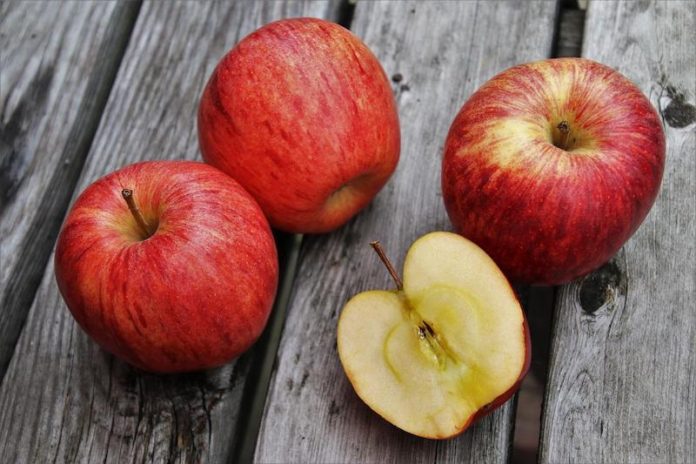
Scientists from Edith Cowan University found that flavonoid-rich foods such as apples and tea may protect against dementia.
Dementia is the loss of cognitive functioning — thinking, remembering, and reasoning — to such an extent that it interferes with a person’s daily life and activities.
Some people with dementia cannot control their emotions, and their personalities may change.
Dementia ranges in severity from the mildest stage, when it is just beginning to affect a person’s functioning, to the most severe stage, when the person must depend completely on others for basic activities of living.
Various disorders and factors contribute to the development of dementia.
Neurodegenerative disorders result in a progressive and irreversible loss of neurons and brain functioning. Currently, there are no cures for these diseases.
For example, Alzheimer’s disease is the most common dementia diagnosis among older adults. It is caused by changes in the brain, including abnormal buildups of proteins, known as amyloid plaques and tau tangles.
Vascular dementia is a form of dementia caused by conditions that damage blood vessels in the brain or interrupt the flow of blood and oxygen to the brain.
Phytonutrients like flavonoids have beneficial anti-inflammatory effects and they protect your cells from oxidative damage that can lead to disease.
Onions, kale, lettuce, tomatoes, apples, grapes, and berries are rich sources of flavonols. Apart from fruits and vegetables, tea and red wine are also sources of flavonols.
These dietary antioxidants may help prevent the development of heart disease, diabetes, cancer, and some cognitive diseases.
However, the link between flavonoid intake and dementia risk has been unclear.
In the current study, researchers aimed to examine the associations between flavonoid intake and the risk of dementia
They also wanted to examine whether this association differs in the presence of other lifestyle risk factors for dementia, such as smoking and obesity.
The team examined 55,985 people in the Danish Diet, Cancer, and Health Study followed for 23 years.
They found generally moderate intakes of flavonols, flavanol oligo+polymers, anthocyanins, flavanones, and flavones were linked to lower dementia risk.
For vascular dementia, moderate intakes of flavonols and flavanol oligo + polymers were associated with lower risk.
Flavonoid intakes were not strongly linked to Alzheimer’s disease or other types of dementia.
In addition, the team found the inverse association between total flavonoid intake and incident dementia was stronger in “ever” smokers than in “never” smokers and in those without a high blood cholesterol level.
Furthermore, the inverse association of vascular dementia with a moderate total flavonoid intake was stronger in “ever” smokers than in “never” smokers and stronger in those who were “normal” to “overweight” than in people who were “obese”.
Based on these findings, the team concluded that a moderate intake of flavonoid-rich foods may help to reduce dementia risk.
The research is published in Alzheimer’s and dementia and was conducted by Dr. Nicola Bondonno et al.
Copyright © 2022 Scientific Diet. All rights reserved.








